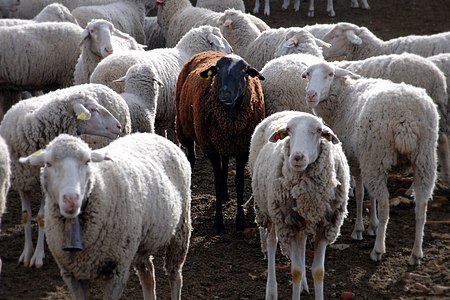
Baa, baa Black Sheep – Can’t we call Different Sheep?
Baa, baa Black Sheep – Can’t we call Different Sheep?
We all have heard the English nursery rhyme – Baa, baa, Black Sheep. In this rhyme, the word ‘black sheep’ has a special significance. The term “black sheep” typically refers to a person who is considered the odd one out or different from the rest of their family or group, often in a negative sense.
PHRASE MEANING
The term “black sheep” is often perceived as negative because historically, black sheep were considered less valuable than white sheep due to the colour of their wool. This association with inferiority or deviance led to the term being used to describe someone who is seen as different or undesirable within a group. Additionally, the colour black has long been associated with darkness, mystery, and negativity in many cultures, further contributing to the negative connotation of the phrase.
In the English language, black sheep is an idiom that describes a member of a group who is different from the rest, especially a family member who does not fit in, disagrees with their community standards and chooses to live outside the norms enforced by your society.
ITS ORIGINATION
The term originated from the occasional black sheep born into a flock of white sheep. Black wool is considered commercially undesirable because it cannot be dyed. In 18th and 19th century England, the black colour of the sheep was seen as the devil’s mark.
In modern usage, the expression has lost some of its negative connotations. However, the term is usually given to the member of a group who has certain characteristics or lack thereof deemed undesirable by that group. Jessica Mitford described herself as “the red sheep of the family”, a communist in a family of aristocratic fascists.
ASPECT ACROSS WORLD
Regardless of cultural differences, every society has individuals who deviate from expected norms or values, causing them to be viewed as different or problematic within their community. Thus, the idea of having a “black sheep” is not specific to any one culture but is instead a common aspect of human social dynamics across the world.
FRANKLY SPEAKING
Frankly speaking, I thought as to why ‘black sheep’ and why not to say ‘different sheet’. What I got the answer was that while “different sheep” could technically convey a similar idea, the term “black sheep” has a specific historical and cultural significance that “different sheep” lacks. “Black sheep” carries uniqueness, and being the odd one out within a group, which are not fully captured by simply saying “different sheep.” Additionally, the term “black sheep” has been ingrained in the English language and idiomatic expressions for centuries, making it more widely recognized and understood than alternatives like “different sheep.”
THIS BEFITS WELL
When we used to say – hold ear, this way or that way and Natha Singh and Fatta Singh – one and the same thing, befits well here.




